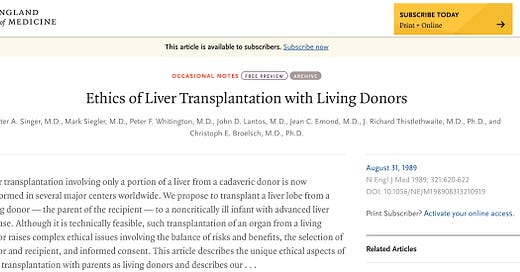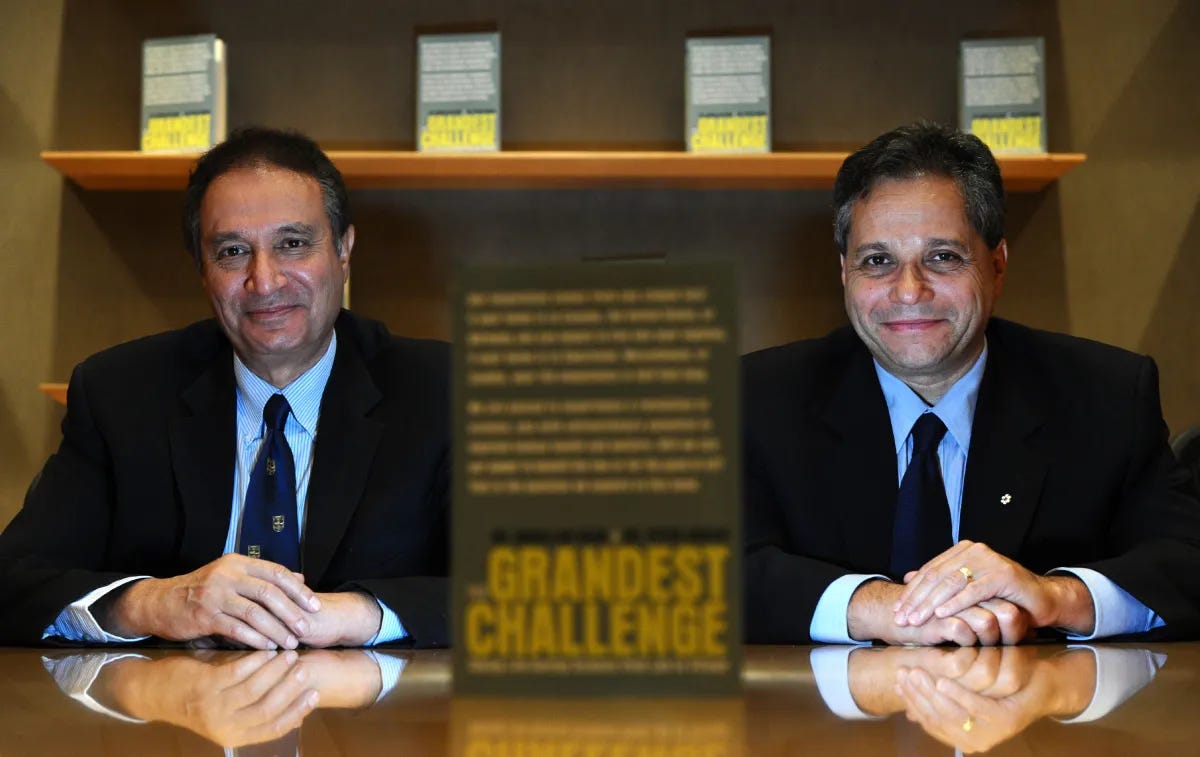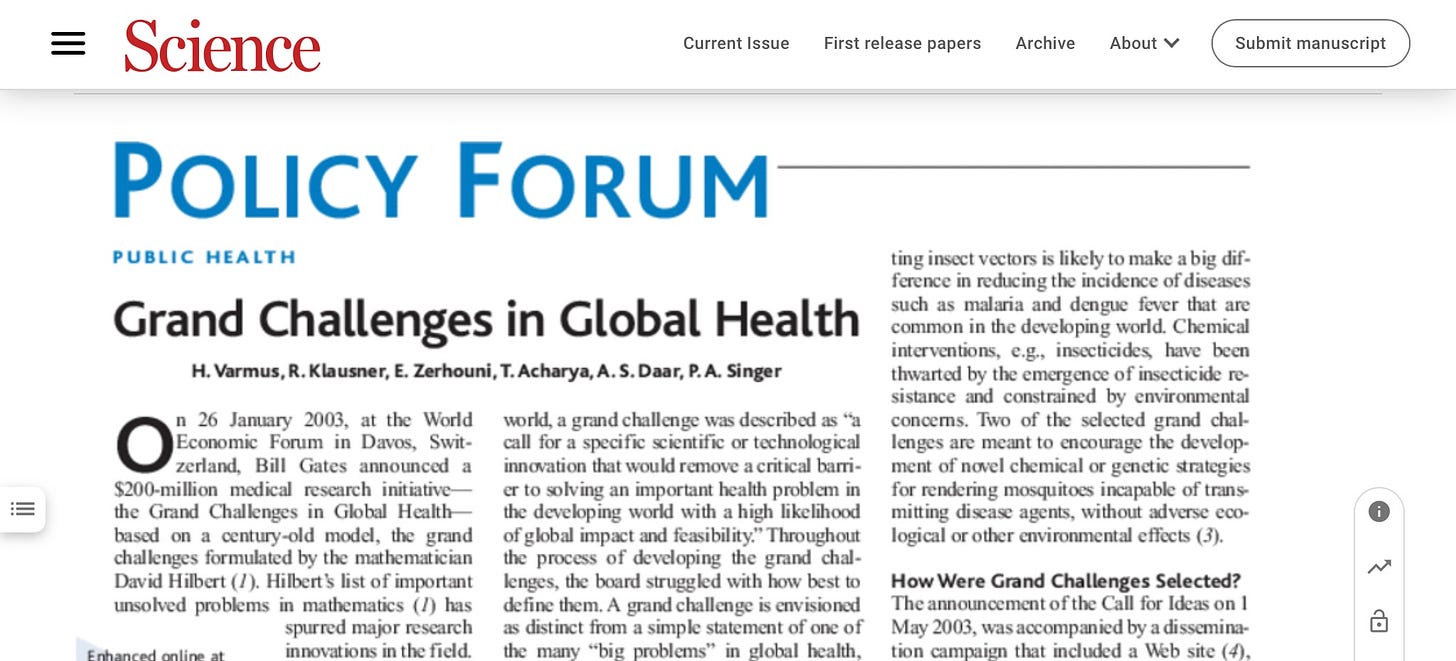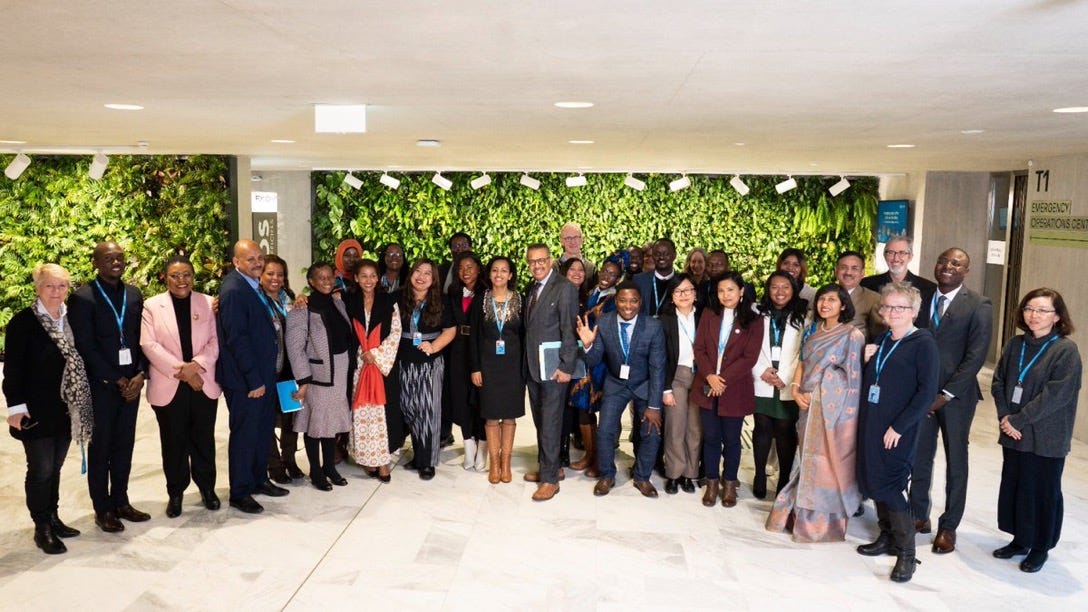“Never doubt that a small group of thoughtful, committed citizens can change the world; indeed, its the only thing that ever has.” — Margaret Mead
I would go one step further and say that one person can change the world. In my mind, that person is you.
In part 1 of this three-part series on career advice for young (and not so young people), we discussed finding a problem and solving it. In part 2, we discussed getting the right mentors working for you.
Here, we discuss platforms, which are the organizations in which you work that can enable (or dis-enable) your contribution.
My best advice: if you see a rocket-ship, hop aboard. I will explain what I mean by that shortly, but let’s begin by considering the first platforms people usually encounter — their choice of education programmes.
You first platforms: Education
I am often asked questions like: Should I go to medical school? Should I do a masters in public health? Should I do a PhD?
When choosing education platforms, ask yourself: which problems will you be able to solve and who will be your mentors?
I always respond to the questions above by asking the person what they want to be doing in 10 years. Then we work backwards to see if the educational programme in question makes sense.
This is also a question about how to get the right mentors working for you, as I wrote about last time. If the mentors you identify are the ones in the education programme you are considering, then its probably a good choice. Otherwise, take a close look at who your mentors in the programme would be. Mentors matter!
The other key question is what problems will you be able to solve? I was fortunate to do my fellowship in clinical medical ethics at the University of Chicago just before the world renowned team performed the first US live donor liver transplant. I had the opportunity to work with the transplant team, under the supervision of my wonderful mentor Mark Siegler, to develop ethical guidelines for this innovative procedure. These guidelines still form the basis of those used today, more than 30 years later, and our process modeled how ethical issues related to a controversial (at the time) innovation could be aired and discussed in advance.
Since education can take a long time, opportunity costs are important. It’s worth considering what else you could be doing with that time. Is there another programme which would better enable you to solve problems during the programme and in the future, or get you to the same place faster?
For example, health professional training is a great experience for many paths in global health. But it doesn’t have to be medicine. It can be nursing or another health profession, something that many don’t consider, but could be shorter and in the end more appropriate for the problems you wish to solve.
We often see people going to law school to prepare for careers in politics, government, or business. We don’t think about health professional education the same way. We should. For me, medicine was the gateway to bioethics, innovation, and public service in an international organization.
Indeed, health professional education is the best liberal arts education you can get. We see people and their families at their worst, and we learn a lot about human character, resilience, and the fragility of human life.
When it comes to programmes like a masters degree in public health or PhD, it becomes even more important to see the platform as one for problem solving. Think hard about what problems you are likely to be able to solve during your training?
And think hard too about mentorship. A critical success factor for PhD studies (or thesis based masters) is your supervisor.
Another consideration, as the hockey great Wayne Gretzky said, is to skate to where the puck is going, not where it has been. Don’t be a lemming. If everyone else is doing a degree in public health, maybe you should consider one in a business school on social entrepreneurship.
You can do a lot more in a greenfield area. This was certainly the case in bioethics when I did it. Don’t do training because its popular now. Your best choice is to do training in a field that will be popular and which no one else is doing at the moment.
Take on some risk, but also mitigate it. I did both bioethics (a new field within medicine at the time) and clinical epidemiology because on the upside I theorized that I could apply the methods of clinical epidemiology to the subject matter of bioethics. On the downside I reasoned at the time that if the field of bioethics didn’t take off I would still have the advantage of being an internal medicine specialist trained in clinical epidemiology.
Finally, take on enough risk that you won’t later feel regret. This is an individual choice, often shaped by deep social forces in your life. Since my mother had lived through the horrors of the Holocaust and Stalinism, she sought stability for her only child. Her career advice to me was that I should be a doctor, dentist or lawyer.
I did take on significant risk in my career choices, but in retrospect, I wish I had taken on just a bit more. The one career I would have liked to have tried along the way is politics, but I never had enough courage to drop what I was doing to try it. (I did get a small taste of it through Dr Tedros first campaign, since the WHO Director-General election had just been restructured along the lines of a UN Security Council election with one country, one vote.)
Hop aboard a rocket-ship
Sometimes, often when you least expect it, a rocket-ship will pass by. A rocket-ship is a platform that is taking off. If you see one, hop aboard.
My first rocket-ship was the Grand Challenges in Global Health initiative of the Bill & Melinda Gates Foundation. My dear friend and close colleague Abdallah Daar and I wrote about our experience in our book, The Grandest Challenge.
In late 2002, we received an email from Dr Richard Klausner, who was then leading global health at the Bill & Melinda Gates Foundation. He wanted Abdallah and I to fly to Washington to meet him. He didn’t say why.
Two weeks later, we met Klausner in a Washington hotel lobby. He explained that Bill Gates was planning to launch what later became the Grand Challenges in Global Health. Gates had been inspired by David Hilbert’s Grand Challenges in Mathematics, unveiled a century earlier.
Then he revealed why he had called us. “We need to have a way to identify grand challenges,” Klausner told us. “Your biotechnologies study seemed like a very good start.” Klausner had just read the study Abdallah and I had published a couple of months earlier in Nature Genetics identifying the top 10 biotechnologies for improving global health.
In January 2003 at Davos, Gates announced $200 million for the Grand Challenges in Global Health. This would be the largest investment into discovery science in the field of global health to date, and it subsequently became much larger.
Two months later I found myself back in Washington in an unmarked Gates Foundation office in a modern high-rise building. Rick had invited me to present the methodology of our top 10 biotechnologies study to himself, Harold Varmus, the Nobel Laureate who was to chair the scientific advisory board of the Grand Challenges, Elias Zerhouni, then head of the US National Institutes of Health, and a couple of others. Of course my power point didn’t work!
At the conclusion of my presentation, we discussed how to identify grand challenges. Harold suggested focusing on the “critical barrier” between where we are and where we want to be, and the definition of a grand challenge was created.
At the end of the discussion, Elias asked, “Peter if you had your top 10 study to do all over, would you do anything differently?”
“Yes,” I replied, “if I had it to do over, I would put $200 million behind our list.” Everyone laughed.
I was later invited to join the initial scientific advisory board and also to work closely with Abdallah to help the advisory board identify the original list of Grand Challenges, which we published in October 2003. As we were writing the paper, led by Harold, I was a bit zealous and kept interjecting my ideas. Harold looked up and said to me: “Peter, you must be difficult to live with!” I was mortified then, but amused now, by his rebuke.
As we saw with the top 10 biotechnologies study, you have to make your own luck, or as Louis Pasteur put it, “chance favours the prepared mind.” This was similar in the case of my second rocket-ship, Grand Challenges Canada.
“We have been reading your editorials,” said a brilliant and innovative young official in the Department of Finance told me when he called on February 28, 2008. I had written two editorials in a Canadian newspaper proposing a Canadian Grand Challenges programme. It was the day of the federal budget and that day the Minister of Finance announced an initial $50 million in the Budget for the Development Innovation Fund. After two years of work, that fund launched Grand Challenges Canada.
Hopping aboard a rocket-ship involves risk and sometimes rocket-ships crash. This is what happened to a planned platform for international development and science led by the late, renowned Harvard immunology professor Fritz Bach, which Abdallah and I also worked on. The platform was to be funded by the founder of a then prominent computer company, and then the dot com crash happened. Those initiatives recently supported by Sam Bankman-Fried may have similar stories to tell.
Despite the risk, if you see a rocket-ship, hop aboard!
What if your rocket-ship is a massive cargo freighter?
Admittedly, most people won’t be working on rocket-ships. They will be working on a massive cargo freighter. These are much more difficult to turn around.
I had this experience too. After co-founding two start ups (University of Toronto Joint Centre for Bioethics and Grand Challenges Canada), I went to WHO with my brother Dr Tedros.
While I thought of my role as a social entrepreneur in the start-ups, I thought of myself as a social intra-preneur at WHO. Here are definitions of intrapreneurship from three leading US business schools.
Intrapreneurship is acting like an entrepreneur within an established company. It’s creating a new business or venture within an organization.
Intrapreneurs are not starting a new business in a competitive market, rather they are internal entrepreneurs who work within the structures of an established company.
Intrapreneur is … a term that describes a person who is encouraged to spearhead new experiments, projects, or initiatives by and within their company.
The essence is that even within a large organization, you can find a problem and solve it. Indeed, that is how I would encourage you to think.
At WHO, the problem we are solving is lagging country progress on the health-related Sustainable Development Goals (SDGs) and the fact that no country was fully prepared for a pandemic of the scope and scale of COVID-19.
We have tested specific solutions to speed up SDG progress including in data and delivery for impact; innovation; and partnerships (more about this in my next series of blogs.)
In a large organization, it’s often more difficult to solve such problems, but once you do it’s on a much larger scale.
And mentorship as a form of leadership (as I wrote about last time) matters just as much and maybe more in large organizations.
Often you can’t solve a major global challenge without an ecosystem combining both start-ups and large organizations. From a career standpoint, its probably best to have the experience of both a start-up and a large organization.
I intentionally changed platforms every 10 years or so, each time building upon the previous one. As I wrote about in my welcome blog, my 40-year career spanned medicine, bioethics, global health innovation, and WHO, and I changed it up every decade or so. This regular refresh brought me much new learning and opportunity to make a contribution. Something for you to consider.
Platforms and privilege
Just as mentorship can entrench privilege, or serve as a powerful tool to promote equality of opportunity, so too can platforms.
These forces operate in many ways, some visible and some not so visible. Of course equality of opportunity requires merit-based hiring and fair hiring practices.
But structural forces can subtly create inequality; for example, unpaid internships.
Darren Walker, President of the Ford Foundation, eloquently made this point in an important 2016 op-ed, “Internships are not a privilege.”
Unpaid internships exclude those without the financial means to avail themselves of the opportunity. Because familiarity is a powerful force in future job applications, such internships begin a cascade of inequality in organizations.
One of the lesser noticed but most pro-equity reforms brought by Dr Tedros at WHO is paid internships.
A further example of a pro-equity plank in WHO’s platform is the recently-launched Young Professionals Programme, whose goals include “… increas[ing] the representation of nationals from Least Developed Countries in WHO’s workforce.”
If you are a leader in an organization, please ask yourself whether you have taken proactive measures to redress structural barriers to equity and to promote equality of opportunity.
In the end, it’s always about character
I would encourage you to think about your career as the contribution you make to the well-being of others.
In this series on career advice for young (and not so young) people, we have talked about three inter-related pillars of career development: find a problem and solve it; getting the right mentors working for you; and harnessing the power of your platform.
Hopefully, this series has helped you in a practical way to optimize your career development. But this three-pronged approach is incomplete.
The missing piece is character. I like to say that the pandemic was an x-ray of our soul. By this I mean that ultimately it all comes down to leadership and character: namely, yours. This often comes out in a crisis or under stress, and requires courage, and sometimes fearlessness. We saw ample examples of this during the COVID-19 crisis, both good and bad.
In the end, it’s always about character: who you are is even more important than (and will determine) what you do.
Finally, let me leave you with some questions for reflection in your career development: Are you always acting with integrity? Are you promoting equity? Are you the leader you want to be?








The right time is to go when you stop learning and growing. Or when a rocket ship comes along. If neither, my rule of thumb was to change careers every 10 years or so as I describe in the first blog.
As a young professional who has recently started a career in global health this article was grounding and insightful. Its hard to shake the habit of job hopping after years of bouncing between roles trying to get the experience for a global health setting. Now that i have secured the 'dream job', my mind is now seeking the next role, job, next risk outside this role. Your focus on intrapreneurship is a reminder to be present in my current role and seek risks and opportunities within this organization, and become an expert in what's in front of me. What would be your advice on how to practice patience for young professionals?